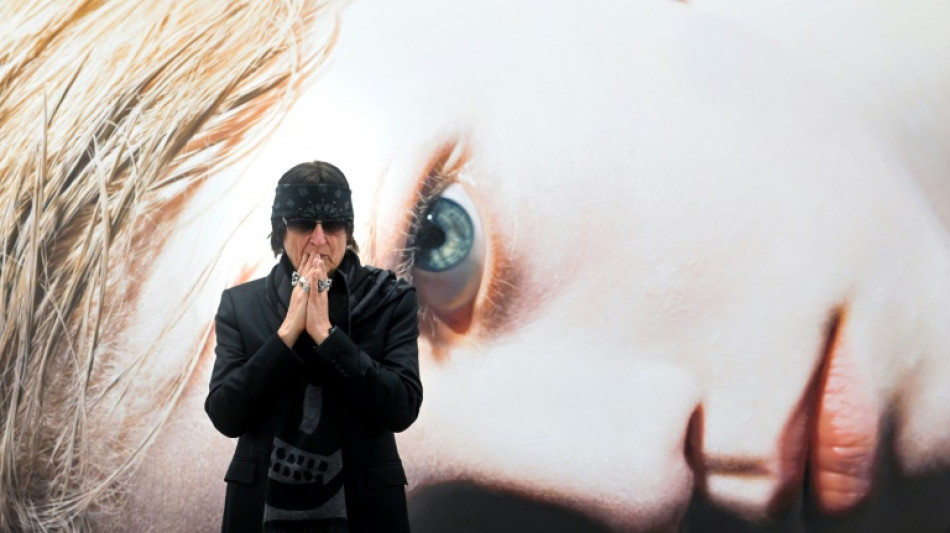

'No limit' to hell people can inflict on children, says artist Helnwein
Art is "probably the only help one has to cope" in a world being traumatised by the wars in Gaza and Ukraine, one of Austria's most famous artists told AFP.
"What is taking place is depressing," said Gottfried Helnwein as a retrospective of his work opened Wednesday at Vienna's Albertina gallery.
The provocative artist -- who has worked with Marilyn Manson and the Rolling Stones -- is known for his haunting photo-realistic paintings which depict violence, power and abuse inflicted on defenceless children.
"There is no limit to what people are capable of doing against someone who cannot defend themselves," said the 75-year-old, whose work has often evoked his homeland's dark Nazi past.
"When I see a child, in the current wars, wounded, crying or dying, it affects me."
"The question (of) whether it is an Israeli or a Palestinian, a Ukrainian or a Russian child becomes superfluous" since it is "a human being who certainly does not deserve this", he said.
The defenceless child is a "central figure" in Helnwein's works.
For the artist, the child is also a metaphor for both human vulnerability and strength that is "completely at the mercy of the fairness of adults".
His oeuvre also includes performances, photography and collaborations with controversial US shock rocker Manson -- who married Dita Von Teese in his Irish castle -- and German metal band Rammstein.
- Painting Hitler in blood -
Born in Vienna in 1948, Helnwein grew up in the shadow of two lost world wars, the Holocaust and the Nazi era weighing heavily on people's minds.
"Vienna was a shit city after the war. Everything was grey and black, people were unfriendly," he said of the smothering atmosphere he struggled to comprehend as a child.
"It was an appalling climate, because history is simply not without consequences."
As a response, "very aggressive, rebellious art" emerged in Vienna in particular as a post-war generation of artists revolted against their parents' legacy.
Through researching the horrors of the Nazi past and the Holocaust, Helnwein zeroed in on the topic of violence against the defenceless -- especially children and women.
"I knew that the only way out for me to approach this subject was art," he said.
Only when people are "emotionally touched" by his works does he consider them finished, the artist said.
Helnwein's early pieces in the 1960s provoked public outcry when he used his own blood to paint Adolf Hitler.
His subsequent paintings would also frequently be confiscated and damaged.
"Over the past decades the attacks have decreased more and more. But there are always people who attack you," Helnwein said, as he has learned to live with criticism.
Asked about his alleged links to the controversial Church of Scientology, Helnwein -- who divides his time between Ireland and the US since leaving Austria in the 1980s -- declined to comment.
The Vienna retrospective features more than 40 of Helnwein's works from the past three decades and runs until 11 February 2024.
(V.Castillon--LPdF)




